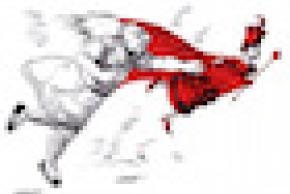Recombination hotspots are subject to an evolutionary process, called biased gene conversion (BGC), which favors mutations suppressing their recombination activity. The analysis of an archaic human genome (Denisovan) showed that this self-destructive process is extremely fast: the life expectancy of most active hotspots is less than 100,000 generations. This suggests that the turnover of recombination hotspots might be the consequence of a Red Queen process: the activity of recombination hotspots leads to their rapid loss by BGC, and the genes that determine the location of hotspots are therefore regularly under selective pressure to switch to new targets.
